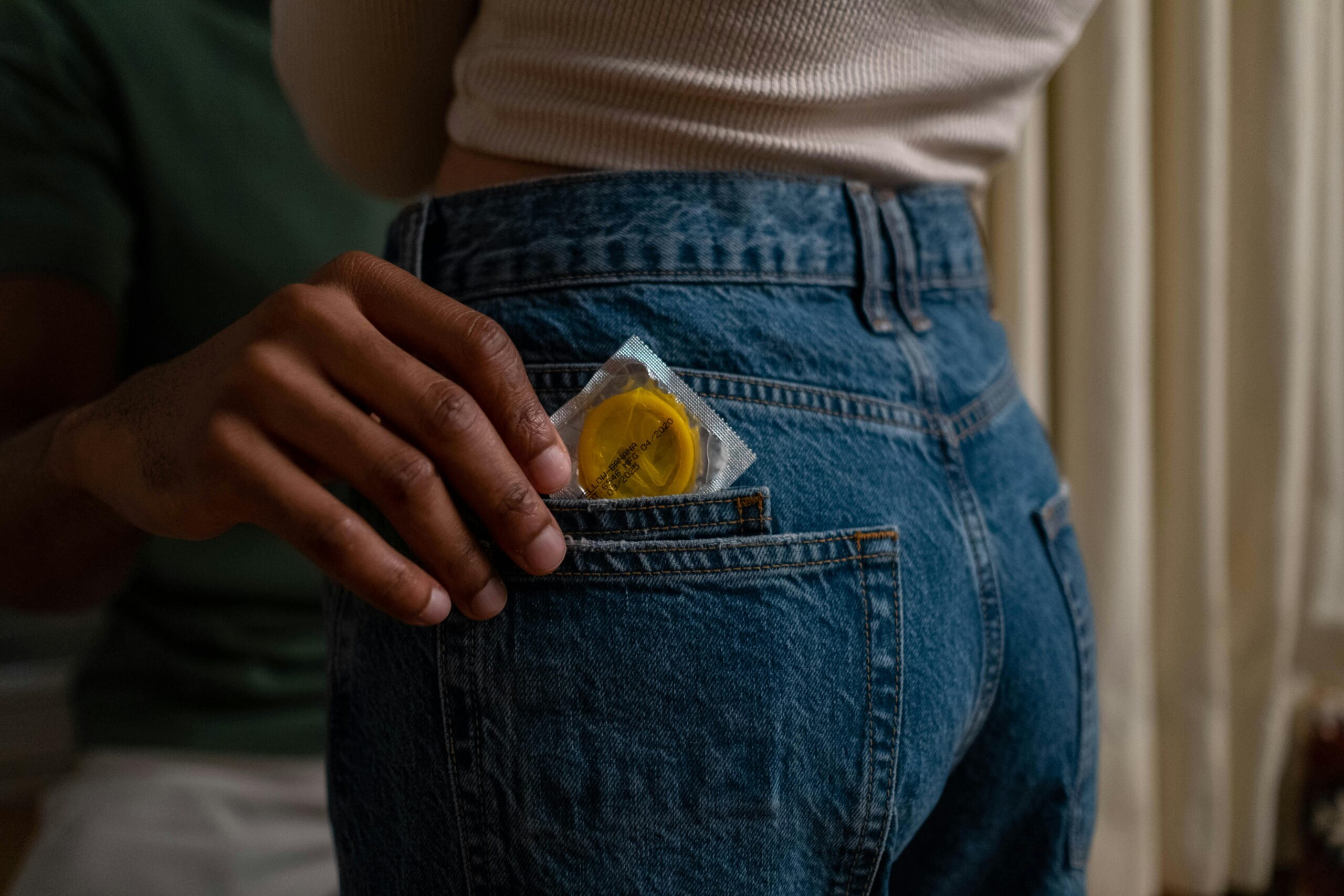Sexual Health: Let’s Talk About It (For Real)
Alright, fam—let’s rip the Band-Aid off. Sexual health is one of those topics we all think about but barely talk about out loud. Like, everyone’s googled something weird at 2 AM, but barely anyone’s out here having chill convos about it at brunch. So today, I’m diving deep into this whole thing—no shame, no fluff, and maybe a little humor to keep it from feeling like a middle school health class.
What Is Sexual Health, Anyway?
More Than Just Sex
Sexual health isn’t just about who you’re doin’ it with or how often. It’s about you—your body, your mind, your relationships, and your comfort level with all of it.
A Whole-Person Approach
Think of it like this: sexual health is like a good playlist. It needs variety, balance, and zero judgment. It covers physical safety, emotional connection, pleasure, identity, and even personal boundaries. All of that matters.
Why We’re So Weird About Talking About It
The Taboos That Won’t Quit
We grow up getting weird looks for even mentioning the word “sex.” Some of us get abstinence-only talks; others get cringy euphemisms like “the birds and the bees.” Is it any wonder we don’t know how to talk about this stuff?
How Culture Shapes the Conversation
Depending on where you’re from or how you were raised, sex might be seen as sacred, shameful, or just never brought up. And those early vibes? They stick. They definitely shape how you approach it as an adult.
Embarrassment vs. Empowerment
But here’s the kicker: when we avoid the conversation, we also dodge the empowerment. Being informed = being in control. Let’s flip the script.
Physical Health Meets Sexual Health
STIs Aren’t Just “Other People’s” Problem
Okay, real talk—anyone who’s sexually active can get a sexually transmitted infection. No, it doesn’t make you dirty or irresponsible. It makes you human. Regular testing is smart, not shameful.
Contraception Isn’t One-Size-Fits-All
Birth control isn’t just “the pill” anymore. There are IUDs, implants, condoms, diaphragms, and apps that track your cycle. Find what works for you.
Barrier Methods, Pills, and Everything in Between
Condoms are like seatbelts—unsexy maybe, but they save lives (and peace of mind). Hormonal options work for a lot of folks, but not everyone. Talk to your doc. Test, try, tweak.
Let’s Get Mental: The Brain-Sex Connection
Stress, Anxiety, and Bedroom Woes
Ever noticed how when you’re stressed, sex is the last thing on your mind? That’s not a coincidence. Mental health and sexual desire are totally linked.
Body Image and Self-Esteem
If you don’t feel good about yourself, it’s hard to feel good with someone else. Been there. And honestly, the journey to feeling sexy in your skin? It’s a process. Be patient.
Relationships and Communication
Talking About It Without Dying of Cringe
The first time I talked to a partner about what I liked? I legit wanted the earth to swallow me. But guess what? It made things way better. Being honest about needs = better connection and pleasure. Period.
Consent: Not Just a Buzzword
Consent is sexy, full stop. It’s enthusiastic, clear, and ongoing. And if someone can’t or won’t give it? That’s your cue to bounce.
Solo Sex and Self-Discovery
Masturbation Myths (And Truths)
Let’s kill the shame here: masturbation is normal, healthy, and actually helps you learn about your own preferences. Despite what weird high school rumors said—it won’t make you go blind.
Exploring Your Own Body
Getting to know what you like is empowering. It makes partnered sex better, too. If you don’t know what you like, how can someone else?
Aging and Sexual Health
Yep, Older People Do It Too
Sex doesn’t stop at 40. Or 60. Or even 80. It just… changes. And sometimes, it gets better because you actually know what you’re doing.
Menopause, Low T, and What No One Talks About
Hormonal changes can affect libido, dryness, stamina—all of it. But guess what? Solutions exist. Talk to your healthcare provider. Don’t suffer in silence.
LGBTQ+ Sexual Health
Inclusive Care Matters
Not everyone fits into the cisgender, heterosexual box. And healthcare needs to reflect that. LGBTQ+ folks deserve respectful, knowledgeable care.
Resources That Don’t Assume You’re Straight
Pro tip: look for clinics that get it. Planned Parenthood is a great start, but there are also local LGBTQ+ centers that offer specific sexual health services.
Let’s Talk About Porn
Realistic Expectations vs. Fantasyland
Porn is entertainment. It’s not a tutorial. Don’t let it mess with your expectations about real bodies or real sex.
When It Becomes a Problem
If it’s interfering with your relationships, your sex life, or your day-to-day? Might be time to talk to someone about it. No shame in that game.
Nutrition, Fitness & Hormones
What You Eat = How You Feel (Yes, Even in Bed)
Foods that help with circulation—like berries, leafy greens, and dark chocolate—can boost sexual health. Yeah, I said chocolate. You’re welcome.
Exercise, Blood Flow, and Bedroom Performance
You don’t have to be a gym rat, but regular movement helps with stamina, confidence, and circulation. All good things.
When to Talk to a Doctor
It’s Not Just When Something’s “Wrong”
Sexual health checkups should be routine. Like oil changes for your body. Prevention > reaction.
What to Expect at a Sexual Health Checkup
STD tests, conversations about birth control, maybe a pelvic exam or testicular check—nothing scary. Promise.
Breaking the Stigma
The Power of Open Conversation
Sharing knowledge with friends, partners, even kids (age-appropriately) breaks generational shame and builds better, safer sex lives.
Passing Healthy Info to the Next Generation
If you’ve got kids or young people in your life, be that open adult they can talk to. It matters.
My Personal Take: Lessons I Learned the Awkward Way
From panic-Googling symptoms to finally asking a doctor about weird discharge (TMI?), I’ve learned that speaking up always feels better in the long run. You deserve answers. You deserve health. You deserve pleasure.
Wrapping It Up: Let’s Normalize It
Sexual health is part of being human. Let’s stop treating it like a dirty secret. Ask questions. Learn your body. Respect others. Be honest. Be kind. And yeah—go get tested, just in case. 😉
Frequently Asked Questions (FAQs)
1. How often should I get tested for STIs?
If you’re sexually active, once a year is a good baseline. More often if you have multiple partners or new ones.
2. Is it normal to lose interest in sex sometimes?
Totally. Stress, hormones, meds, even sleep can affect libido. It’s normal—and often temporary.
3. Can I talk to my regular doctor about sexual health?
Yes! You don’t need a specialist to ask questions or get tested. Your GP can help or refer you if needed.
4. What’s the best birth control method?
It depends on your body, lifestyle, and goals. There’s no “best”—just what’s best for you.
5. Can diet and exercise really improve sexual performance?
Absolutely. Good blood flow, stamina, and confidence all tie into physical health.




Post Comment